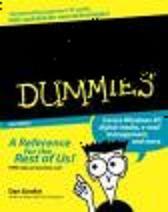
Tall & Thin…yup, it’s what everyone wants to be…Well, in London “tall & thin” means big bucks…at least when it comes to real estate property. There is a house in London that measures just 5 feet across… that’s only 60 inches wide… Let me put this in perspective…60 inches is the length of the average bath tub…it’s about the width of your car…and it’s only slightly bigger than the length of Rafael Palmiero’s Pinocchio nose…What would you pay for this (excuse the expression) dollhouse? Need more information? According to the listing information it has a “narrow” kitchen, a “narrow” dinning room, three (you guessed it) “narrow” bedrooms, a shower room (what, no tub?) and five levels (I said it’s tall and thin). OK, so back to the real estate question…What would you pay for a 5 foot wide, five level house located in West London?... How about $933, 868 (that’s what I call a fat price for a thin house). The house is being marketed by London’s Winkworth Real Estate company. They describe the house as “unique” (you think?). “Full disclosure”…some sections of the house are wider (well, not that much… 9 feet wide or two of Palmiero’s Pinocchio noses). I figure they call this section the “Great Room”. Want to make an offer? First, you have to meet the physical requirements…Tall & Thin.










